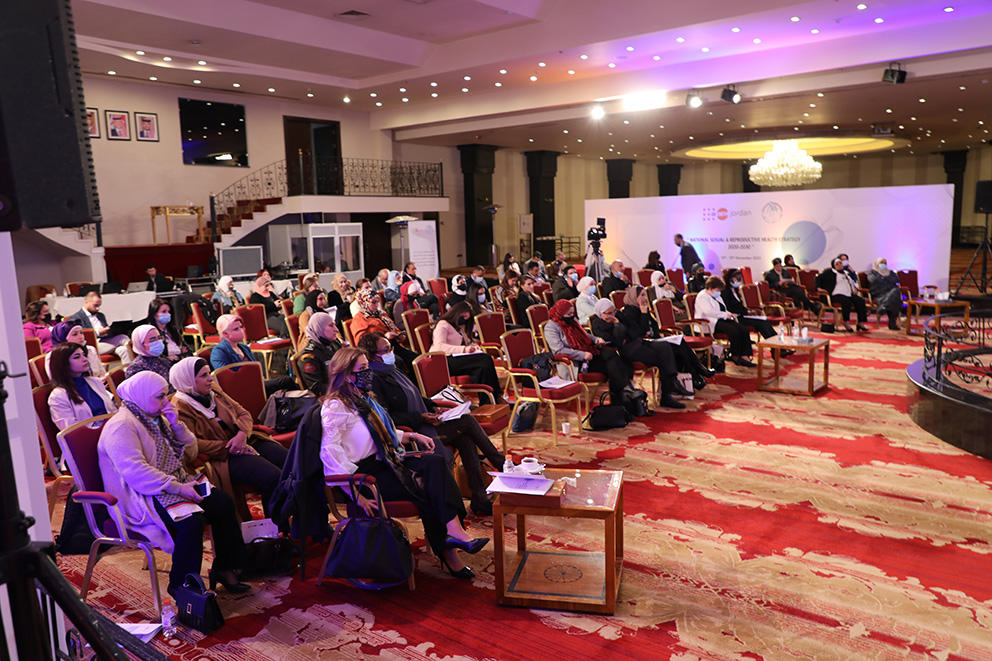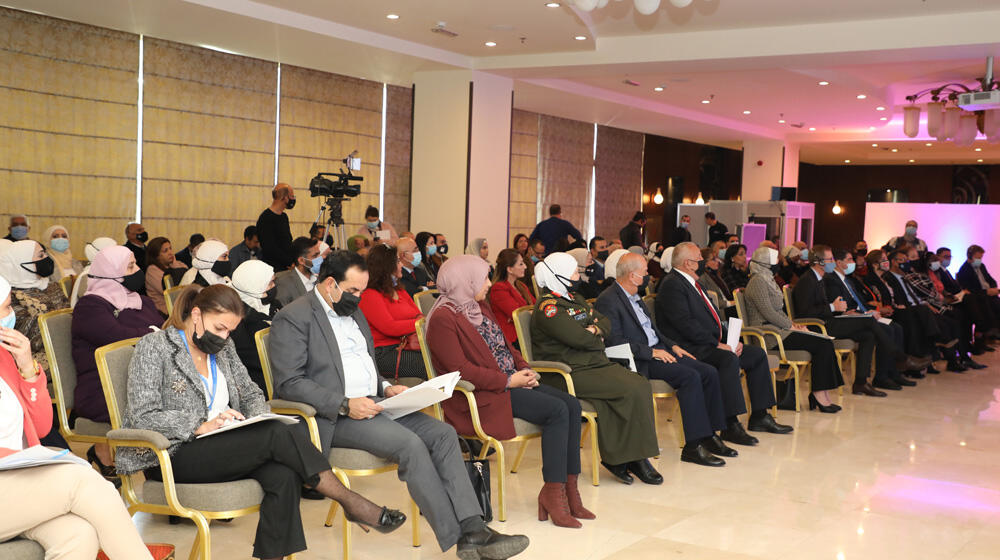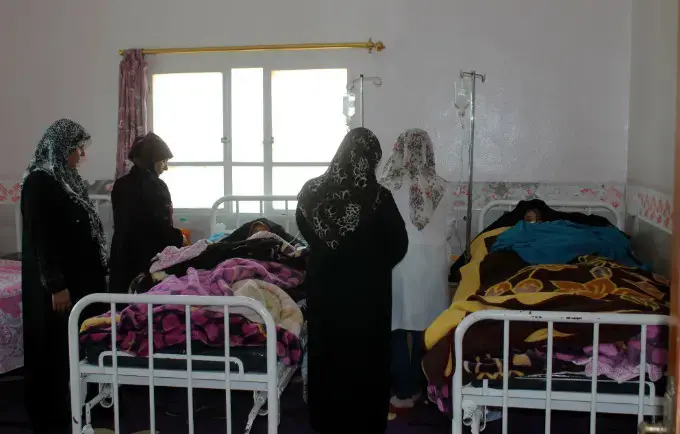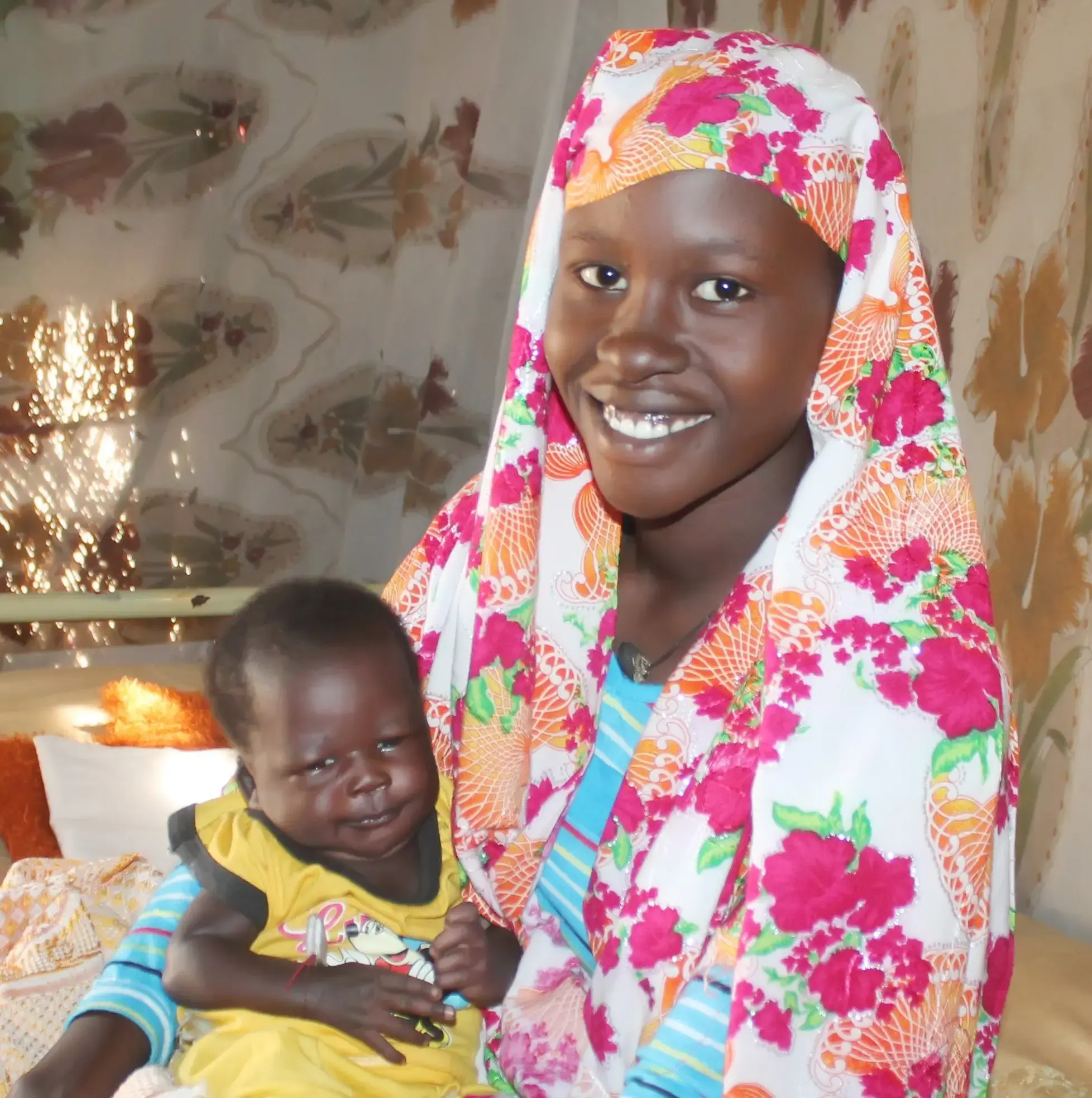Amman – Sunday 12/12/2021- The Higher Population Council, in cooperation with the United Nations Population Fund, launched the National Reproductive and Sexual Health Strategy for the years (2020-2030), during a ceremony held today, Sunday, under the patronage of the delegate of the Minister of Health, Dr. Firas Al-Hawari, Secretary-General of Administrative and Financial Affairs in the Ministry of Health, Dr. Elham Khreisat,with the participation of the relevant national authorities.
The Secretary-General of Administrative and Financial Affairs at the Ministry of Health, Dr. Elham Khreisat, confirmed that Jordan has made important achievements in the field of reproductive health, especially in reducing the maternal mortality rate, by providing advanced health care for mothers in hospitals.
She indicated that the ministry is working hard to improve the quality of health services provided, both preventive and curative, to raise the level of reproductive health services and implement the goals of the national agenda.
She indicated that maternity, childhood and family planning services are provided free of charge in all centers affiliated with the Ministry, by qualified health cadres in about 520 centers. They include maternal care during pregnancy and after childbirth, childcare up to five years of age, family planning services, counseling services and health education. In addition to providing immunization services for pregnant mothers and children, early detection of breast cancer, and investigation of domestic violence.

She added that the ministry provides health services to Syrian citizens and refugees living in remote areas, by expanding the provision of maternity and childhood services to include some sub-health centers in the north and central regions, where these centers now provide some maternal and child services such as vaccination, pregnant care, postpartum and family planning. Comprehensive referral centers have been approved and established in all governorates of the Kingdom and provided with the necessary medical devices and tools to evaluate and follow up high-risk pregnancies.
The Secretary-General of the Higher Population Council, Dr. Abla Amawi, stressed that this strategy, which was prepared by the Council in cooperation with the United Nations Population Fund, is a frame of reference for the various partners in Jordan, through which it is possible to develop, harmonize or include institutional plans. The necessary interventions to achieve comprehensive access to services and information Integrated reproductive and sexual health to contribute to the well-being of families in Jordan.
She pointed out that the strategy is based on evidence, data and lessons learned from international, Arab and national reports and studies, and takes into account the specificity of the situation in Jordan with regard to the priorities of reproductive and sexual health issues. It will also contribute to achieving the Sustainable Development Goals 2016-2030, especially the third goal on health and well-being.
She identified that the desk review of studies, reports and strategies related to reproductive and sexual health, showed that there are a set of challenges to achieving reproductive and sexual health goals in Jordan, the most prominent of which is the limited integration between sexual and reproductive health programs and primary health care programs in health centers and women's services, and obstetrics in hospitals, shortage and weakness in programs that evaluate the level of sexual and reproductive health services currently provided in the public and private sectors, the extent to which service providers adhere to the approved protocols and the extent to which beneficiaries are satisfied with them, the weakness of sexual and reproductive health services provided to Syrian refugees, and the existence of financial, social, cultural and awareness barriers that prevent them from reaching these services, the weakness of services directed at sexual health and sexually transmitted diseases, and the health of adolescents and youth in government health centers, and the lack of an integrated package of basic services related to sexual and reproductive health directed to these age groups, and many other challenges.
For his part, the United Nations Resident Representative in Jordan Anders Pedersen stressed that the United Nations Population Fund is working to ensure that sexual and reproductive health and rights remain at the heart of development, as the International Conference on Population and Development establishes a clear link between reproductive health, human rights and sustainable development.
He added: "Failure to meet sexual and reproductive health needs deprives individuals of the right to make critical choices about their bodies and their future and will have a subsequent impact on the well-being of their families and future generations. Denial of these rights exacerbates poverty and gender inequality.”
The strategy included four strategic objectives within four axes: the environment axis, through the development of supportive and enabling legislation and policies for integrated sexual and reproductive health issues, and the services and information axis, which is achieved by providing integrated sexual and reproductive health services and information of quality to the entire population (individuals) in all regions of the Kingdom, and the community axis, which deals with achieving positive societal trends, beliefs and behaviors towards reproductive and sexual health issues, in addition to the sustainability and governance axis, which focuses on developing integrated, institutionalized and sustainable sexual and reproductive health services and information within effective sector partnerships.
The strategy was developed by following the strategic planning methodology that is based on broad participation, coordination and cooperation with all stakeholders through the involvement of all governmental and non-governmental institutions, civil society organizations, the private sector, relevant scientific and research institutions, and donors working in Jordan in the field of sexual and reproductive health issues with the support of The United Nations Population Council, based on the analysis of the current reality of reproductive and sexual health issues, and its comparison with global indicators in this field.
On the sidelines of the launch ceremony, several discussion sessions were held over two days, dealing with several topics related to the participation of the relevant authorities. The session on the first day dealt with the topic of "Implementing a Comprehensive Package of Sexual and Reproductive Health Services".
On the second day, three discussion sessions will be held on the topics, quality of care: sexual reproductive health services, strengthening the health response to gender-based violence, and national standards for youth-appropriate sexual and reproductive health services.




